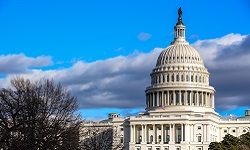 Congress Averts Government Shutdown
Congress Averts Government Shutdown
On Saturday night, the House and the Senate voted to pass a stopgap funding measure (H.R. 5860) to keep the government open for another 45 days past fiscal year 2023, which ended on September 30, through November 17. The bill maintains funding at FY23 levels and includes an additional $16 billion in emergency disaster aid but no aid for Ukraine.
AAU commends lawmakers for working together to avoid a shutdown, which would have had significant negative effects on higher education and the scientific research enterprise. AAU is also pleased that Congress rejected stopgap measures that would have cut funding for students and higher education, instead electing to keep funding levels the same as FY23. With the immediate crisis of a government shutdown now averted, AAU urges Congress to work together to swiftly enact appropriations measures that fund American science and that boost funding for higher education and student aid.
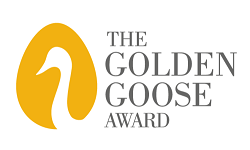 Golden Goose Award Honors Scientists Whose “Silly-Sounding Research” Led to Major Breakthroughs
Golden Goose Award Honors Scientists Whose “Silly-Sounding Research” Led to Major Breakthroughs
Earlier this week, the Golden Goose Award honored five scientists whose unusual, curiosity-driven research conducted with federal support led to major scientific breakthroughs. The Golden Goose Awards were launched in 2012, building upon an idea by then-Rep. Jim Cooper (D-TN) to honor federally funded researchers whose work may sound silly, odd, obscure, or wasteful of taxpayer funding, but which has had a major positive impact on society. AAU is one of the founding sponsors of this award, which has enjoyed bipartisan, bicameral support from Congress since it was first launched.
This year’s awardees’ research resulted in a novel method to sequence DNA that led to a pocket-sized device that can sequence DNA and RNA in real time; a technique to use bacteria to modify plant genes that has changed modern agriculture by helping farmers grow enhanced and pest-resistant crops; and chicken breeds that have revolutionized chicken farming and helped chicken become one of the most cost-effective global sources of protein. The teams’ stories are told in this short documentary film, now available on YouTube. Please join AAU in congratulating these intrepid scientists!
 32 AAU Members Commit to College Cost Transparency
32 AAU Members Commit to College Cost Transparency
Thirty-two AAU member universities (full list below) have joined an initiative geared toward providing students with financial aid offers that are clear, accurate, and transparent about actual costs to students and their families. By joining the College Cost Transparency Initiative (CCT), the institutions have committed to using the initiative’s principles and standards to communicate financial aid information to prospective students in a way that is easy to understand and makes clear the full cost of college. AAU President Barbara R. Snyder is among the 10 higher education leaders who formed the CCT. Both Education Secretary Miguel Cardona and House Education and Workforce Committee Chairwoman Virginia Foxx (R-NC) have endorsed the initiative.
AAU members that have committed to the CCT principles and standards include: Arizona State University; Case Western Reserve University; Dartmouth University; Emory University; Georgia Institute of Technology; Michigan State University; Rice University; Rutgers University; Stony Brook University; Texas A&M University; University of Arizona; University at Buffalo; University of California, Davis; University of California, Irvine; University of Colorado; University of Iowa; University of Kansas; University of Miami; University of Michigan; University of Minnesota; University of Missouri; University of North Carolina at Chapel Hill; University of Pittsburgh; University of Rochester; University of Southern California; University of South Florida; University of Utah; University of Virginia; University of Washington; University of Wisconsin; Vanderbilt University; and Washington University in St. Louis.
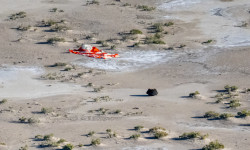 University of Arizona-led OSIRIS-Rex Mission Delivers Asteroid Sample to Earth
University of Arizona-led OSIRIS-Rex Mission Delivers Asteroid Sample to Earth
The University of Arizona-led NASA OSIRIS-Rex mission successfully delivered a sample of rocks and dust from the asteroid Bennu last week. The OSIRIS-Rex spacecraft, according to UArizona, traveled “billions of miles to Bennu and back” and launched its sample capsule from 63,000 miles above the Earth’s surface; the capsule landed safely in the Utah desert on September 24.
Per the university, “The sample collected from Bennu will help scientists make discoveries to better understand planet formation and the origin of organics and water that led to life on Earth, as well as benefit all of humanity by learning more about potentially hazardous asteroids.” The university was selected in 2011 to lead the mission “because of its long-standing history of innovation and expertise in sending unmanned spacecraft to places none have gone before.” Congratulations to the Wildcats for this successful mission!
 DOD Awards $238M to Establish Eight Microelectronics Regional Innovation Hubs
DOD Awards $238M to Establish Eight Microelectronics Regional Innovation Hubs
Earlier this month, Deputy Secretary of Defense Kathleen Hicks announced $238 million in CHIPS and Science Act funding to establish eight Microelectronics Commons regional innovation hubs. According to Hicks, “The Microelectronics Commons is focused on bridging and accelerating the lab-to-fab transition, that infamous valley of death between R&D and production.”
According to DOD, “over 360 organizations from over 30 states will be participating in the Commons.” Many AAU members are among the recipients of the awards and are leading or co-leading the hubs. Per DOD, “Hubs are charged with developing the physical, digital, and human infrastructure needed to support future success in microelectronics research and development.”
News of Interest
Colorado Public Radio: Philip DiStefano, CU’s Longest-Serving Chancellor, Is Retiring After Decades on Campus – University of Colorado Boulder Chancellor Philip DiStefano announced last week that he is retiring after nearly 15 years of service. DiStefano will return to a faculty position in the university’s School of Education once his successor is chosen.
Forbes: Feds Investing Nearly $115 Million in Three New Cancer Technology Research Projects – The Advanced Research Projects Agency for Health (ARPA-H) recently announced $115 million to launch three research projects “to discover new ways to detect and fight cancer.” The research projects will be led by AAU members – Rice University, the University of Missouri, and the Georgia Institute of Technology. “At ARPA-H, we recognize the urgency of the health challenges facing cancer patients and their families and we are committed to funding truly transformative research that can improve health outcomes for everyone,” said ARPA-H Director Renee Wegrzyn.
Times Higher Education: NYU President: Global Engagement Is a Form of Alchemy – In an opinion essay, New York University President Linda G. Mills writes about how, in order to solve global challenges such as climate change or inequality, academic institutions must expand their global engagement and infrastructure. “At a time when critics of globalization erect obstacles to international collaboration, our collective future depends on our capacity to convene, converse and collaborate across differences,” she says.
The Washington Post: Biden Administration Cracks Down on Career Programs That Saddle Students with Debt – The Department of Education has released new regulations “that would cut off federal student aid to vocational programs whose graduates consistently have high loan payments relative to their income.” The regulations will also require all institutions to disclose information about “the cost of attendance, typical borrowing amounts and graduates’ earnings.”
The Chronicle of Higher Education: Americans Value Good Teaching. Do Colleges? – Surveys find that Americans value good teaching at colleges, but that colleges often disincentivize teaching in favor of research, provide little pedagogical training to faculty, or relegate teaching to contingent or part-time faculty. However, there are several national efforts underway that are trying to change how students are taught and bring evidence-based pedagogical and teaching evaluation methods to the classroom. These include AAU’s STEM Education Initiative and the teaching evaluation project, as well as the Boyer 2030 Commission, which was co-chaired by AAU President Barbara R. Snyder and underscored in its report the importance of good teaching in helping diverse students excel in the classroom and beyond.
Featured Research
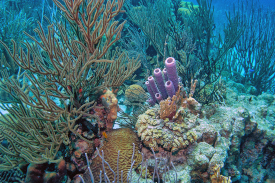
For Coral Harmed by BP Oil Spill, a Deep-Sea ‘Elevator’ Offers Hope for Recovery
Researchers at the University at Buffalo are using a remotely operated vehicle to gather coral fragments from the ocean floor and bring them to the surface. Researchers then propagate the coral by hand and use an “elevator” to lower the pieces back to the ocean floor. The experiment will help scientists with coral recovery in areas harmed by the Deepwater Horizon spill in 2019 and also by ocean warming.
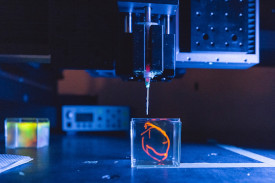
Moonshot Effort Aims to Bioprint a Human Heart and Implant It in a Pig
Researchers at Stanford University have received a grant to “bioprint a fully functioning human heart and implant it in a living pig within five years.” Bioprinting is a 3D printing technology that allows researchers to print “living tissues cell by cell.” While scientists are probably still decades away from implanting bespoke, bioprinted organs in humans, the “initiative will serve as a necessary and powerful proof-of-concept to accelerate the commercialization and translation of organ engineering.”
From Our Feeds
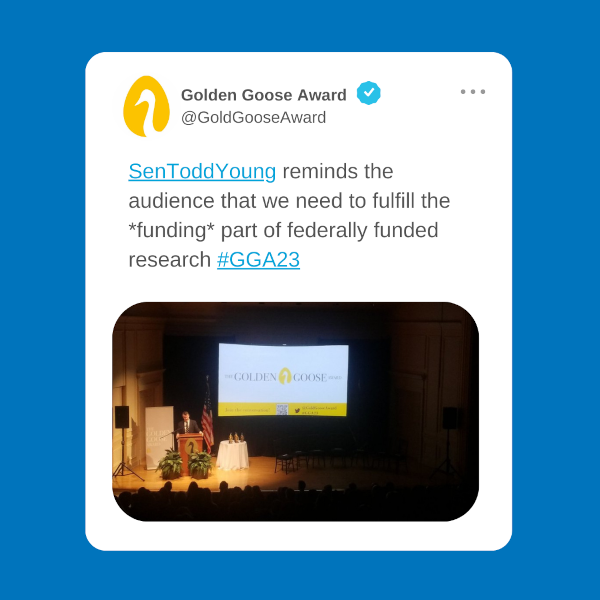
The Golden Goose Award, which honors federally funded research that may sound frivolous or silly but has resulted in tremendous societal impact, has bipartisan support in Congress. Last week’s ceremony honoring the awardees at the Library of Congress featured remarks by Sen. Todd Young (R-IN), Sen. Chris Coons (D-DE), Rep. Suzanne Bonamici (D-OR), and Rep. Bill Foster (D-IL). Read more about this year’s awardees at goldengooseaward.org.